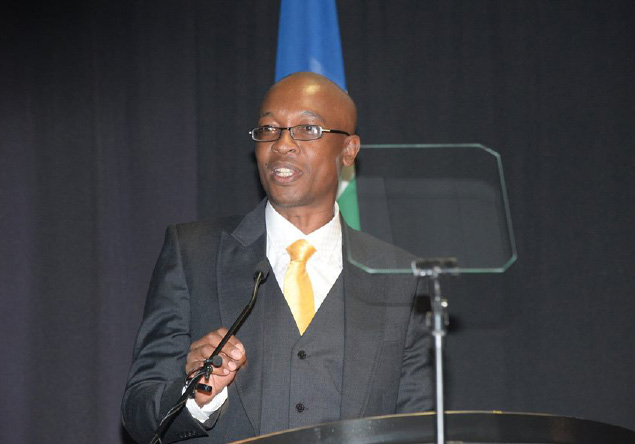Working together with its citizens has proved to be a recipe for success for the City of Johannesburg.
 Open conversations between the City and citizens over a nine-week period resulted in the Growth and Development Strategy – Joburg 2040.
Open conversations between the City and citizens over a nine-week period resulted in the Growth and Development Strategy – Joburg 2040.
“In 2011 we convened nine weeks of intensive, open conversations with citizens across the City. We asked you to help us imagine the best possible Joburg of 2040, and to understand the choices we have to make to get there,” said Mayor Parks Tau during the State of the City Address recently.
The strategy aims to enable and build a new economic democracy and redesign the City through the Corridors of Freedom, which is recognised as a globally leading innovation by the United Nations and thus received an initial commitment of R100 million from the Global Environment Facility.
Joburg’s Corridors of Freedom programme is bringing new life to Fleurhof, South Hills, Kliptown, Jabulani, Turffontein, Rosettenville, the student halls and shopping squares of Empire Road, Randburg, Jabulani, Orlando East and Park Station.
It’s also bringing new mixed-use change all along the Louis Botha Corridor, connecting the Inner City, Orange Grove, Alexandra and Sandton.
“The redevelopment of the Paterson Park node in Orange Grove and Norwood commenced with the development of the Louis Botha Corridor and the rollout of the Rea Vaya Phase 1C.”
The City is also rebuilding a state-of-the-art clinic, redeveloping public recreation and sports facilities and revitalising Paterson Park and its waterways.
“It’s about multi-storey buildings rising along the corridor and combining commercial and green space, recreation and cultural amenities, market-rate rentals and social housing.
“This means more people across a range of incomes are able to live richer lives, much closer to where they can live, work and play,” said Mayor Tau.
Another priority for the City is the development of quality, integrated housing in Fleurhof, South Hills, Lufhereng Riverside and Malibongwe Ridge.
Access to basic services
The City has increased access to basic services, including electricity, including through its new micro-grids in informal settlements.
“We were the first City to mitigate load-shedding, with the help of our new smart meters. We have also focused investment on the roads and traffic signals which are the arteries of life and commerce in this great city, upgrading our key bridges and highways as we go.”
During the period under review the City of Joburg conducted a comprehensive audit of its 181 informal settlements, which consist of 168 000 households.
“The vast majority have access to basic water and sanitation,” said Mayor Tau.
The City has electrified 15 of these informal settlements, from Sejwetla to Lawley Station and Thembelihle, and another six will be completed before the end of term.
“We have formalised nearly 29 000 informal sector homes and relocated over 600 households to linked housing projects. We are also actively engaging communities to find long-term solutions to their settlements,” added Mayor Tau.
Empowering business and youth
The City has rolled out the most ambitious youth empowerment programme in the country, partnering with over 250 companies. The programme has been recognised by the Citibank Foundation and the Economist Intelligence Unit as the number one city-level youth strategy globally, alongside Toronto.
“We have aggressively enabled small businesses, and the township economy in particular, and will soon be adding our new JoziBread bakeries and township micro-mechanics as the newest community enterprises empowered by our Jozi@work programme.
“We are building links between the new township economy and our continent leading corporate sector,” he said.
Revitalising the inner city
The Global Financial Centres Index this year found that Johannesburg is the most economically powerful city in Africa.
The inner city received a R14 billion investment via the Urban Development Zone tax incentive, which resulted in the creation of Maboneng, a new Braamfontein.
“We are complementing this with a better street trading management system for the inner city – a trading sector where three of the CBD streets alone turn over in excess of R10-billion a year,” said Mayor Tau.
In addition, the City has installed its own high-capacity fibre network and is ensuring that the Rea Vaya Bus system is the backbone of its new development vision.
Did you know?
The Massive Open Online Varsity - MOOV initiative - which is at the heart of the Vulindlel’ eJozi programme – is already opening up opportunities for 4 000 young Joburgers.



 Facebook
Facebook Twitter
Twitter WhatsApp
WhatsApp